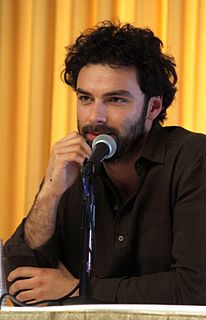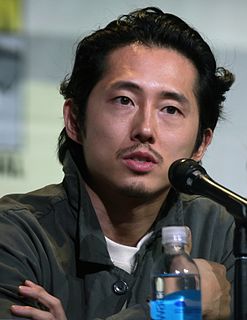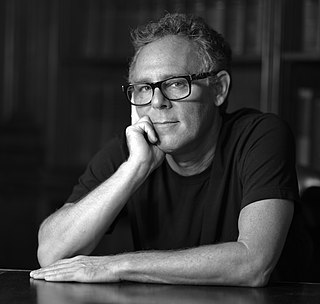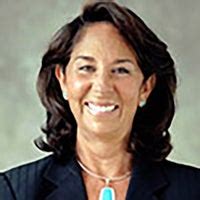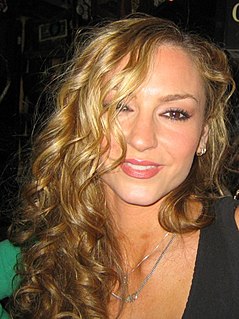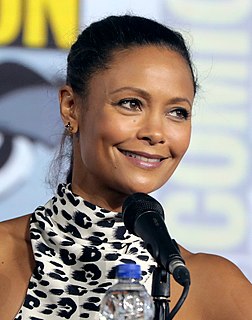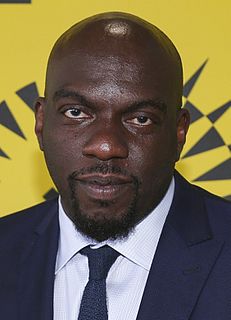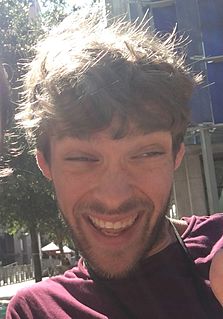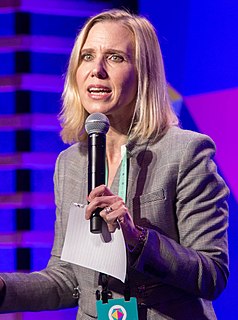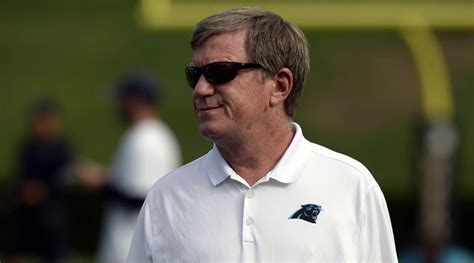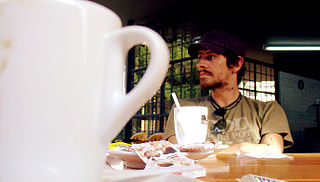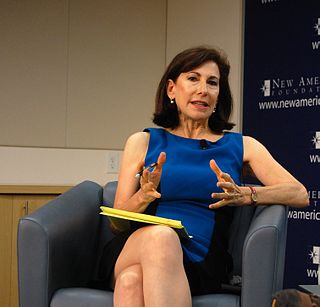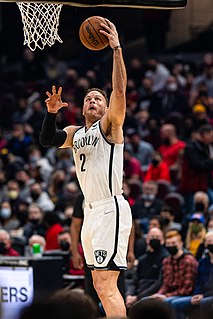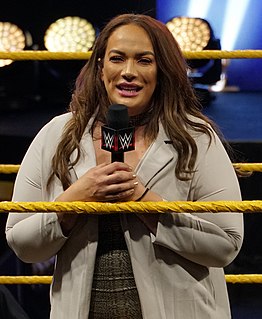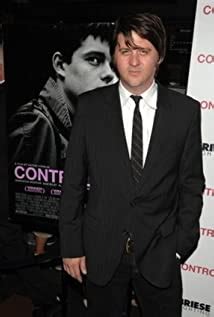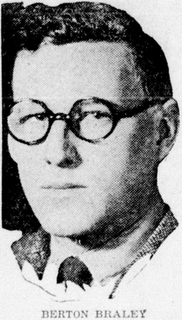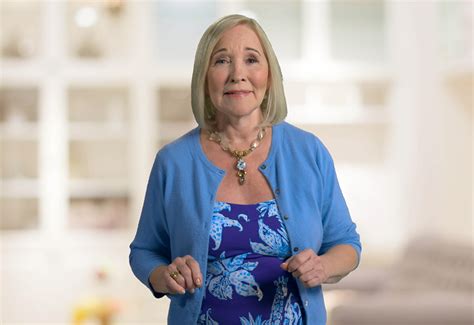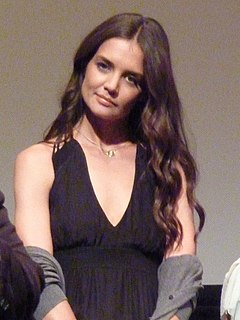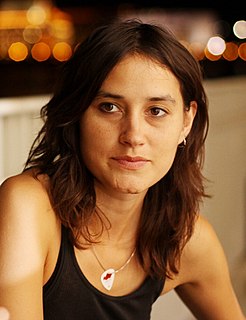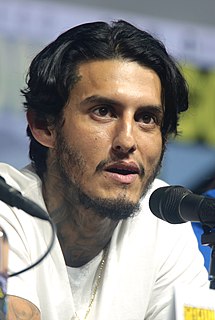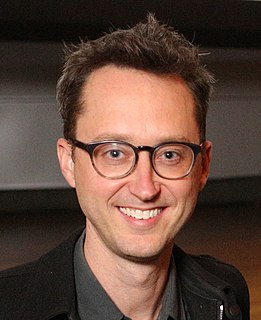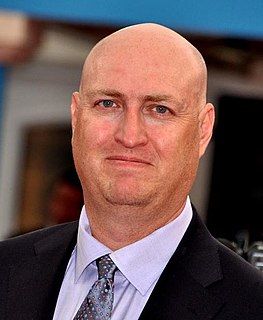Top 802 Figuring Quotes & Sayings - Page 13
Explore popular Figuring quotes.
Last updated on April 21, 2025.
If I think back to every rehearsal process for every play I've ever worked on, there's just so much crying at home. I barely sleep. There are moments of deep despair and anxiety, and then there are moments in rehearsal that are the most exhilarating; feeling seen and seeing everybody. Feeling like you have a purpose on the planet. A huge part of the process I enjoy is watching the actors figuring out what they can handle and what they can take and what they need from the director and me.
For me, it is about using everything that is there and using the gaps in the record, figuring out why the gaps might be there. And then when you move on to the level of what historians said, laying the interpretations side by side. You also have to look back at the documents and make your own judgments. What the record says and what people say about it. A novelist can fill the gaps in a way that a biographer cannot.
If you don't have the ability or encouragement to use yourself in a physical way, you could become just another talking head. And talking heads run things. That's part of the reason why we're in such a sad state as a planet, because it's all about thinking, and thinking has led to a lot of aggrandizement - taking over [resources] and figuring out how you can steal and leaving people and the planet in an impoverished state.
I think I'm fascinated with history and - just in general. And I'm always interested in how did - how did this come to be? Why is this the way it is? And even singing classical voice, I quickly became more and more interested with early music, baroque voice. And that became an obsession to me - just figuring out how - who are the ancestors of whatever it is.
At eight o'clock the curtain goes up and that's it, you're out there with yourself, the audience, the other players. There's no "take two" business. You're on. The great thing is the rehearsals, too. When you're bouncing around on film sets and TV sets you don't really get the opportunity to - generally speaking - rehearse much. With theater you're kind of four-to-five weeks locked down in the room with the guys figuring stuff out. It's back to play school.
A central notion in the Affordable Care Act was we had an inefficient system with a lot of waste that didn't also deliver the kind of quality that was needed that often put health care providers in a box where they wanted to do better for their patients, but financial incentives were skewed the other way... We don't need to reinvent the wheel; you're already figuring out what works to reduce infections in hospitals or help patients with complicated needs.
One of the things that you come pretty early on to understand in this job, and you start figuring out even during the course of the campaign, is that there's Barack Obama the person and there's Barack Obama the symbol, or the office holder, or what people are seeing on television, or just a representative of power. And so when people criticize or respond negatively to me, usually they're responding to this character that they're seeing on TV called Barack Obama, or to the office of the presidency and the White House and what that represents.
The poet Amanda Nadelberg puts it nicely in an interview when she says "often what I listen for in poems is a sense that the writer is a little lost, not deliberately withholding information or turning on the heavy mystery machines, but honestly confounded - by the world? isn't it so? - and letting others listen in on that figuring." That's what engages me - the mind in motion, the drama of someone in the process of thinking - and it's the elusive mystery of those movements that I hope to capture in my essays.
I never look at the internet because then you just have nothing else to do but just look. Most generally, and even myself as a consumer, you think you know what you want. But what's more interesting is figuring out what you don't want. I think the only way that I can do that is just to do what I think is right. That is the only real gesture of respect. Then people can react to the movie how they want to react.
Having read the source material, I had to have drawn from that. As a fan, I wanted to remain true to that character, but it was really cool because, as we were figuring these characters out, I realized that there was a lot more backstory, rather than what I had gotten just from reading the book. Glenn doesn't really get much of a backstory there. He's just seen as this kid who is put in this situation, not knowing where his mind-set is, but then you slowly see him start to develop.
It's interesting because the way J.J. cuts - we're very close with our editors as well, so it's kind of the first cut and then he went back and started tightening things up, etc, then loosing things when it was too tight. Then you start watching it and you start figuring out performance - not performance, character-wise I should say, who you're really able to follow, whose journey is harder to follow, and you make all that work.
I applied [to film school] figuring, "I need to find some structure for myself. I need to find a way to figure out what kind of filmmaker I want to be." And that is what film school provides you with. It'll teach you the basics of how a production works and the technical side of how to put everything together, but you could also learn that by working on film sets.
I think philanthropy is also growing and catching on. Figuring out how the philanthropy sector, which is quite small compared to the private sector, which is the biggest by far, and then the governments, you know, even in these poor countries over time has to take on these key responsibilities. How does philanthropy accelerate that? Drive the kind of innovations, make sure they get used well. So it plays this kind of special role.
If I say any word, like, "Sit next to me." There is a chemistry inside of my brain and your brain that is figuring out what that means and turning that request into action. The brain is designed in a way to enable us to translate these strange interaction codes that people have with each other into something that can manifest a whole company's success. That's so extraordinary and that's what's going on. Everybody in the world needs to know that, in the whole planet. I just talked to somebody who studies cosmoses. She said, "Cosmoses need this."
Well, I know from some of my own experience, and many of my friends' experiences, when going through that sort of program. The whole addiction game really forces you to focus on what brings you there and accept the only way out. So once you really put this focus on getting better and figuring out what your flaws are, that's what brings you back. I think she could've been more reckless and shown up earlier, but I wasn't really available to come back.
In a 22-page comic, figuring an average of four to five panels a page and a couple of full-page shots, a writer has maybe a hundred panels at most to tell a story, so every panel he wastes conveying a.) something I already know, b.) something that's a cute gag but does nothing to reveal plot or character, or c.) something I don't need to know is a demonstration of lousy craft.
We've become more and more interrupt-driven. If you have six tasks to do in an hour, you can't just take 60 minutes and divide and have 10 minutes per task. You have 10 minutes per task minus the time required for context-shifting. That will be the next big challenge: figuring out how to fight the distraction-driven mode we're in and stay focused on one thing long enough to get it done.
Tolkien understood about the things that happen after the end. Because this is after the end, this is all the Scouring of the Shire, this is figuring out how to live in the time that wasn’t supposed to happen after the glorious last stand. I saved the world, or I think I did, and look, the world is still here, with sunsets and interlibrary loans. And it doesn’t care about me any more than the Shire cared about Frodo.
Crucially we haven't been figuring out how to live in oneness, with the Earth & every other living thing; we have just been insanely trying to figure out how to live with each other, billions of each other, only we're not living with each other our crazy selves are living with each other, and perpetuating an epidemic of disconnection.
I spent a year and a half working for an art fair. I worked as a post-production assistant for a documentary film company for a while. Then I worked at the Apple store because I wanted a discount to be able to buy new gear to edit things while I was figuring out whether or not I wanted to go to film school. Those were the main things.
I work with a group of actors, and whenever one of us has an audition, we all get together, and we all work together on it. I think it takes us back to our film school days, our drama school days, us just working together and figuring it out because somebody else is going to see something in the material that you won't see.
I ended up [doing video] meeting Gillian [Grassie] at the same time that we were getting together a book. We ended up working on it, and she recognized that I had a flair for certain things, and we've worked through it together so that the writing could be really good. It was the perfect partnership, just finding my literary voice and figuring out how comedy translates to the written word.
When I went to college in 1988, most people were probably trying to figure out how they were going to decorate their rooms, who was going to be on their floor, what classes they were going to take. My big preoccupation at that point was figuring out how I could get my absentee ballot so that I could vote in Ohio for Michael Dukakis at that time.
If the veteran only has a year or two left on his contract, teams are hesitant to trade a draft pick for a player in that position. Why pay a big cap number for a guy you might only have for a short time And then there's the reality that the veteran and the agent would probably want to be on the open market anyway, figuring they'll get more money that way. The system is not conducive to making a deal for a veteran.
What came up at age 49 is I realized that of all the things I'm interested in, the thing I'm most interested in is figuring out what makes people tick, why people think the way they do, why they act the way they do. And I realized that music is such a great way to investigate why people do what they do.
At Wal-Mart, a co-worker once advised me that, although I had a lot to learn, it was also important not to "know too much," or at least never to reveal one's full abilities to management, because "the more they think you can do, the more they'll use you and abuse you." My mentors in these matters were not lazy; they just understood that there are few or no rewards for heroic performance. The trick lies in figuring out how to budget your energy so there'll be some left over for the next day.
There are many readers of the book, who don't know anything about the authors and the artists. There is more than one author. It doesn't matter, if you can't make the reader dive into the story and surround him with that environment and those characters. That's an experience that lasts longer than figuring out who did what. I think that's what makes our working relationship better, it helps us to make a book that feels unique and not like different voices.
You could hear the wind in the leaves, and on that wind traveled the screams of the kids on the playground in the distance, the little kids figuring out how to be alive, how to navigate a world that was not built for them by navigating a playground that was. . . Who am I to say that these things might not be forever? Who is Pete Van Houten to assert as fact the conjecture that our labor is temporary? All I know of heaven and all I know of death is in this park: an elegant universe in ceaseless motion, teeming with ruined ruins and screaming children.
What I learned about acting, from my experiences directing, is why so many producers and directors don't like actors. You go through all of this work securing a location, figuring out how to get electricity there, how to get trucks parked where they need to be, and where catering is going to come from. And if the actors don't come up with some magic, it actually didn't matter. That creates a lot of animosity towards the actors.
When I'm talking about a developing world, I also look at clean-water access - women who are more vulnerable to sexual violence when they're fetching water. And talking about what we have going on here, with our carbon footprints and our emissions, is just as important to me as figuring out how to provide clean water to people who need it in regions around the world.
Everyone needs some trial and error figuring out how it's gonna work for them. I could have gotten that out of the way a little sooner but I think you're totally right, the way I kind of think about things and the way I wanted to put myself out there doesn't fit the traditional side of things. I needed things like podcasts and YouTube and things that allow you to get it out there yourself and stand in the flames.
We're creating this alliance, GAVI, that has helped buy the vaccines that were in the rich world but not getting to the poor kids, getting a very cheap price and figuring out the cold chain, getting the delivery right, and then funding research for new vaccines. A lot of them are coming along. We've got a meningitis vaccine out, got that through large parts of Africa. That has been a huge success.
The word smart is not applied to all professions, even if you are smart in that profession. No one talks about smart lawyers. They may say a brilliant lawyer. They'll talk about a creative artist. Smart is saved for scientists. It just is. It's not even really applied to medical doctors. It applies to scientists in the lab figuring out what hadn't been figured out before.
When we listen to improvisational jazz, or solo classical violinists, the way they phrase and inflect melodies feels vocal, like they’re talking to us. When I was figuring out how to perform solo, I wanted to move back and forth between bass riffs, melody, and harmony, so I often used sounds instead of — or alongside — the words of a song. I found that if I sang a line using the consonants, vowels, shadings, and inflection we recognize as human language sounds, people responded as if I were talking to them.
I spent most of my 20s dating older men, and I really wish I had spent that time dating men my own age who were going through the same experiences I was. I totally understand the appeal of a mature, dashing older man over fellow twenty-somethings who are still figuring things out. And, true, a fling with an older man can be instructive in many ways, and no doubt he finds you attractive.
Any time you add something to your game, you still have to find ways to improve, so I'm still studying the game and trying to find out ways to increase how we use me on the floor. You're not being complacent, not falling back and floating around the perimeter too much, figuring out when to attack. I'm trying to find that balance between attacking and spotting up and things like that.
Most challenging, mainly for me, learning how to bump, learning to trust your body and trust somebody else with your body, when we're learning how to do bodyslams and suplexes and figuring out how to kick somebody right while making sure to protect each other. In the beginning, for me, a forward roll was pretty challenging.
There was always this sort of weird process in the development and pre-production, thinking, 'How do we get the studio tracks that Joy Division recorded that are so clean and pristine but sound rough and live and how do we get the live versions to actually sound clear enough so you can make out what they're saying?' That was sort of the frustration with Anton Corbijn and myself, figuring out how we make that work.
The best way to make change is to know how something works. If you're going to go build something or change whatever it is, if you don't know how it works and you're trying to go make a change in it, the first thing you're doing is you're spending time figuring out how it works. The same thing happens in organizations.
I want to keep growing as a writer. I find myself doing unexpected projects and sort of challenging my idea of where I am in my career, or what I'm supposed to be doing. In fact, I'm not supposed to be doing anything. Just finding projects that are challenging to me. I want to be a writer who keeps growing and figuring out new things and hopefully people will follow me along as I publish these things.
"On Script" is one of my favorite songs I've ever written. I'd just been jamming on it one day, and again I was struggling with lyrics. I'm still figuring out what it's about. I've seen a couple of reviews that are like, "It's about the monotony of playing the same songs every night," because I say, "On script every night/Like a well-rehearsed stage show." It's not about that at all, but I find that funny, how people project what they think about me, or songwriters in general.
My father was a university professor and his thing was tenure. Any time I hear a university professor say tenure, I hear the word dinosaur. You're not supposed to be getting tenure. You're supposed to be figuring out how you can teach more students at a better price and more effectively. That's your job.
I do think they [French] view my writing itself as exotic - though that's probably not the best term for it - to a small extent, mainly because I say things that most French writers would probably hesitate to say for fear of offending someone or upsetting public sensibilities. I don't think that answers the question, but I'm not much good at figuring readers out or I would probably be writing bestsellers.
The one thing that everyone knows about America is people will say, I know my rights. One of those rights is the right to organize. When workers do get together and organize and drive up their wages, they are much, much better off. I think this is one integral part of food policy. We can't talk about increasing the price of food without figuring out how working Americans are going to pay for that.
Perhaps if there is anything remotely interesting about my writing style, it is this: more often than not I have no idea what the story is going to be about. Sometimes I have a fuzzy vision, or a glimpse of one scene, or a character. But mostly all I have is a random first sentence, and I follow it to see where it might go. For me, writing is the process of discovery, of gradually figuring out what happens in the story and how it ends, that makes writing an interesting process for me.
I honestly believe that sound commercialism is the best test of true value in art. People work hard for their money and if they won't part with it for your product the chances are that your product hasn't sufficient value. An artist or writer hasn't any monopoly .... If the public response to his artistry is lacking, he'd do well to spend more time analyzing what's the matter with his work, and less time figuring what's the matter with the public.
I felt so proud to be having a baby and so excited. And I felt closer to other women - to my sisters, to my mom. I felt empowered, like, 'I've given birth. I did it! There's nothing I can't handle.' I've really enjoyed this time that I have taken to be with Suri, as well as the challenges of the first couple of months: feeding and pumping, learning to decipher what each cry means - is she hungry? Is she tired? Does she need a fresh diaper? - and figuring out how to really help her.
I think the most note-worthy part is that Stella [Mozgawa] had joined the band two weeks before we started recording, so that really influenced the way that the album was recorded. It was really important for Stella and Jen[ny Lee Lindberg] to lay down the drums and bass first for most songs, because they were determining how they needed to lock in together, and Stella was still kind of learning and figuring out her parts.
Keep a diary, but don't just list all the things you did during the day. Pick one incident and write it up as a brief vignette. Give it color, include quotes and dialogue, shape it like a story with a beginning, middle and end—as if it were a short story or an episode in a novel. It's great practice. Do this while figuring out what you want to write a book about. The book may even emerge from within this running diary.
There's so many ways to be a voice and that's what I'm figuring out. Being an artist, being an actor, it's about telling stories that could heal, that could open up discussion that could make the community better. There are many (Latino) stories that need to be told and haven't been told right. If I could help be that voice then that's what I'm going to do, because this is a reality for me.
I like being connected to young people, or younger people who are trying to figure out the language of film, bringing theorists from the dawn of the art in the 20th century. There is a way you find a synthesis. You read texts by the Soviets who are discussing montage, and you have students figuring out how to put scenes together and tell stories visually. The theory becomes relevant in daily practice. It's free labor, which is pretty cool too. I think we all learn from each other and benefit from the collaborations.
I always think it's better to take your time and go through a lot of ideas - and dismiss a lot of ideas - before figuring out where to land. It's a good way to care for your audience, too. If you spend hours and hours and days and weeks coming up with the ending, then there's a chance the fans won't figure it out on their own.
Yeah, we don't consider many stupid things. I mean, we get rid of 'em fast...Just getting rid of the nonsense -- just figuring out that if people call you and say, 'I've got this great, wonderful idea', you don't spend 10 minutes once you know in the first sentence that it isn't a great, wonderful idea...Don't be polite and go through the whole process.
The goal of a private company is, first, zero to one. Get past the product market fit, figure out whether people actually care about what you're trying to build and someone will pay you money for that. That's the zero to one problem. So scaling, one through N, is figuring out can you do that at scale and how big is the scale. And when people pay you more than what it costs for you to make it, does that equation end up leaving you with money left over, i.e. profits.
A lot of me figuring out how to love myself more involves finding the things that I'm ashamed of and looking them right in the eye. And something I always find beautiful about Jesse's work is that he finds beauty without any calculation. People say that his work is dark, but he never sees it as such. For him it's all almost about educating people to process why they feel disgust.
After I got out of law school and worked in a big law firm, I thought, there are so many kids like me, in my neighborhood, that could be here if they had more support from their families, better financial aid. But the gap is so wide once you miss that opportunity. So I was always interested in figuring out, How do you bridge that? I felt, as a lawyer, when I was mentoring and working with kids, that I gained a level of groundedness that I just couldn't get sitting on the forty-seventh floor of a fancy firm.




